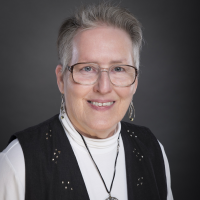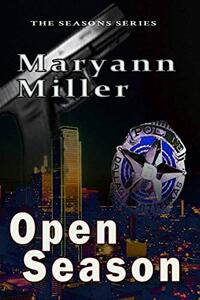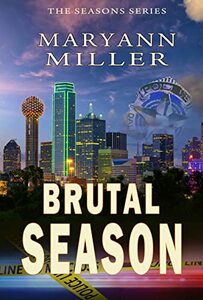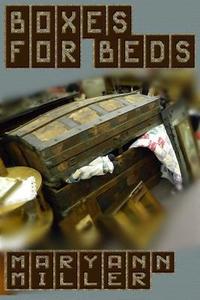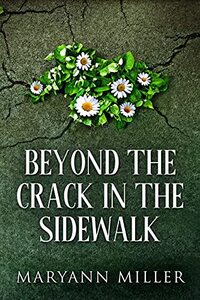What was your childhood like? How has it influenced you as an author?
Interesting you should ask that question. I didn’t have a stellar upbringing, and I’ve been looking back at it quite a bit in these golden years. The biggest impact it has had on my writing has been the prompting to write about my mother’s life and then my own. The first book, Evelyn Evolving, has been written, and I am about to start on my memoir. Both of our lives were affected by poverty and abuse, and I have come to realize how her experiences in an orphanage colored her inability to be a loving parent.
As a child, I lost myself in books to avoid thinking about the problems at home, and that introduction to story and the power of story, is the main reason I wanted to be a writer from a very young age.
You have been publishing books for more than two decades now. Can you tell us about your journey as an author?
My first success as a writer was receiving an award in the Scholastic Writing Contest when I was twelve-years-old. Of course, I immediately thought I would become rich and famous within a year at least. A lot of things interfered with that dream for a long time, and while I’m still not rich and famous, I am proud of my writing accomplishments.
My first paid gig was a humor column for a Dallas suburban newspaper that I wrote for severa years. I was known as the Erma Bombeck of Plano, an honor that I still treasure. That led to other journalism work, and I had articles and short fiction printed in national and regional publications. As any writer can attest, nonfiction sells easier than fiction, and often for more money, so working as a journalist helped keep some food on the table. Still, I continued to write fiction, stories being my first love, and I was so happy when Five Star/Cengage gave me a contract for One Small Victory, which opened the door to the publication of Open Season and then Stalking Season. Both books received critical acclaim from Library Journal, Publisher’s Weekly, and Kirkus, which has been a big thrill for me.
What is something you have learned about writing and being an author over the years?
That it doesn’t get any easier. While creating new characters and new plot ideas is fun, the actual work of writing, editing, rewriting, editing some more until you get it right remains the same. It’s work. And you need to just sit your butt down in the chair and do it.
What according to you is the most important thing that a person must keep in mind when writing a crime or mystery series?
For each book there is a fine line between writing enough background to keep the reader up to speed on recurring characters and pages of info-dumping. I love to read series books, and the ones I enjoy most just drop hints of characterizations from past books into the next one. That is a technique I applied to Stalking Season, the second book in the Seasons Mystery Series, and I think I did that well enough that there have been no reader complaints. ��
Who are Sarah Kingsly and Angel Johnson and what is their dilemma? If you were a homicide detective, who in your life would be an ideal partner for you and why?
While developing these two characters, I first decided to flip the stereotypes. Sarah is the one who comes from a poor, dysfunctional family, while Angel comes from an upper middle-class family that is intact; mother, father and brother who is an attorney. The major dilemma they face, besides trying to catch a serial killer, is the issue of racism. The city, the department, and the community at large sizzle with racial tension, and that hampers their ability to work smoothly with each other.
If I were a homicide detective I would want my oldest son to be my partner. First because he has an interest in law enforcement, but also because he’s a big, strong Marine. He’d have my back.
What aspects of the racism do you cover in Open Season?
In Open Season, I really looked at racism from both sides of the racial divide, because it is a problem from both sides. It started decades ago when blacks were slaves and “white privilege” was firmly established, and now we see it in more subtle ways, but it is still there, affecting the way people interact. When Angel asks her very bigoted father to stop and consider that Sarah is not a “honkey bitch” he won’t even try. He lumps Sarah in with all the bigoted white folks he has ever met, without giving her a chance. The tendency to do that kind of lumping is strong in white families and black families, and it just perpetuates the problems.
How did you come up with the idea for Doubletake? What was it like collaborating with Margaret Sutton for this book?
Doubletake evolved from a process that started when Margaret contacted me to see if I would be interested in collaborating with her on a book. She had met a man who had been a doorman at the Ritz in New York for 30 years and had stories about the celebrities who had been in and out of the hotel over that time period. It was a fascinating concept, so I agreed to work with her. Something happened between her and that man that ended their arrangement. I never knew what, but I liked Margaret enough to agree to try writing a mystery together. She was also an avid fan of mystery novels, so we had that in common.
At the time, there was a series of rapes in a Dallas suburb, and the perp was called The Blanket Rapist. Margaret, being the more devious of the two of us, suggested that we take the rapist one step further and have him kill his victims. She also taught me how to write cuss words.
Working with Margaret was a blast. She has a wicked sense of humor and once put fake puke on my chair in her office. When I saw it, she made a big show of blaming her cat, then howled with laughter when I realized the puke was not real. During the writing I came to appreciate the way our unique strengths as a writer complemented each other, and I have found that true in all the collaborative writing relationships I’ve had.
You are an author, a screenwriter, a theatre director, and an actress. People who are this creatively engaged usually face a lot of objections and criticism from society. Have you experienced this? What advice do you have for people who face this type of criticism?
I honestly have never had that problem, but my advice to others would be to not take criticism personally. Critiques, or edits, of our work are only beneficial if we can put our sensitivities aside and see the value in the feedback.
You are very involved in the field of performing arts. Which is your favorite play and why? What is your favorite play that you have directed?
It is so hard to pick a favorite play out of all that I directed, but I did really enjoy mounting “The Secret Garden.” I had an incredibly talented group of actors who worked hard to bring to each rehearsal new nuances of their characters, so that made my job as director incredibly easy. I didn’t have to micro-manage them on stage. When the actors were actually crying for real in tender moments of the story, it was pure magic on stage.
Likewise, it’s impossible to say which of the plays I acted in was my favorite, but I did have a special moment in “Squabbles” that still makes me smile. I was giving my nemesis in the story a really hard time in one scene and a lady from the audience called out, “You go girl.” I had a hard time staying in character and in the harangue, but I managed. Later, the director told me he had never had that happen before in a show he directed, and he said it was because I made that moment so real for the audience.
That’s an actors job, to make each moment of a story real so the audience will be transfixed.
Tell us about your cats. What are they like and who is your favorite?
Okay, first, there can be no favorite. Just like with kids. I love them all, but there are times they need to go to their room. Sammy, even though he is mixed breed, channels his Siamese heritage a bit too much at times. He is the biggest cat and tries to wield his weight among the others, and the dog. The dog, a lab pit bull mix, is entirely intimidated by Sammy. The other cats are not. Sammy’s sister, Lily, is perhaps the most laid back of all four cats. She’s is a long-haired gray tabby and is so flexible I have seen her on a blanket with head in one direction and back end in another. Her favorite thing is to sit on my lap while I am working, sometimes sliding off when she relaxes too much.
Harry and Hermione are brother and sister. Two black cats who chose my late husband and me almost seven years ago. Harry was my husband’s cat, and he, the cat, loved to snuggle in my husband’s beard and would lie there on his shoulder for hours. Harry is very demanding, talking a lot and patting my leg just in case I didn’t hear him telling me it’s time for dinner. Hermine takes a page from her brother’s handbook, becoming very vocal and restless when I have let feeding time stretch ten minutes over from the norm. All of the cats will come into my office and wander around on my desk, the windowsills, back on the desk, across the keyboard, and back on the windowsill. They think they are being subtle about reminding me about food, but they aren’t fooling me.
What kinds of books do you like to read? If you could belong to any fictional universe, which would you choose and why?
My reading tastes are not confined to one genre, although I do lean slightly toward mysteries. I like a good woman’s novel, such as Kristy Harvey’s The Secret to Southern Charm, and I enjoy memoirs as well. There are times I will binge on Young Adult novels, too. So many of them are well written and adults can enjoy the stories as much as young readers.
Do you prefer a utopia or dystopia?
Actually, neither. I really like real life in the real world, which is why I’ve never been a fan of fantasy or science fiction.
Do you have a secret to success?
That would depend on what stick you are using to measuresuccess. Monetary success or satisfaction? I am very satisfied with what I have accomplished with my writing, from my earliest work as a columnist, to now as an author and editor. Am I rich or famous? No. But I have spent many years of my life writing articles and books that have mattered to at least a few people, and it has been something I took great joy in doing. And I still do. So, I guess that is my secret; doing something for so long that I enjoy. When the process of writing is no longer fun, then it will be time to quit.
What book ideas are you currently working on?
Currently, I’m working on the third book in the Seasons Series. Desperate Season has been in the works for several years, put on the back burner when the idea for Evelyn Evolving popped into my head and wouldn’t go away, and I need to get it finished.





